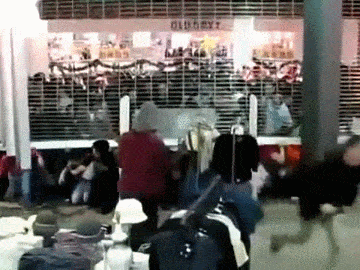It’s the run-up to exam season and Gen Z has plenty of stress factors to juggle. That means students are...
Generational slang is nothing new. Gen Xers have it (‘sike!’), Millennials have it (remember ‘bae’?), and now, Gen Z is communicating via their very own network of slang terms.
If your brand goes to market for, aims to hire, or generally wants to engage with Gen Z, you must take a very important and obvious first step: Understanding what they say. Like every generation before them, Gen Z has its slang, formed by a tight connection to social media, fluency in memes, and demand for authenticity.
Many of these terms are not new—they’ve actually been around for decades—but have only recently arrived in mainstream culture, thanks to the wide-open playing field that is the internet.
Sometimes, the best source for the latest language intel is someone who works with Gen Zers every day, like a high school sociology teacher from Massachusetts, whose list of youth slang went viral after he shared it with his class.
Since he can't be here to break it down for us, we'll do our best in his stead. So take a seat, because class is about to start.
What started as a viral dance move from Vine and YouTube that mimicked riding a bike has now taken on many meanings, including, simply, “yes!”; the ability to throw an object across a long distance; or an exclamation that fits many situations.
.png?width=512&name=unnamed%20(11).png)
To slay is to “kill it,” so to speak. You can slay in that new outfit you just bought, or with the hard work you put into your hair or makeup. Slaying is not just about looking good, it’s about looking your best—and flaunting it.
.png?width=512&name=unnamed%20(10).png)
Gen Zers uses “flex” to describe someone showing off, gloating, or parading around. “Look at him in his new car, just flexing.”
.png?width=512&name=unnamed%20(9).png)
 4. Lit
4. LitA multipurpose word used when something is incredible, high-energy, or otherwise awesome. Also often used to mean intoxicated.
.jpg?width=283&name=unnamed%20(2).jpg)
A term born out of the popularity of the high-end fashion brand. These days, it means that something is good (“Your hair looks so Gucci!”).
.png?width=287&name=unnamed%20(8).png)
Remember when we used to say something was “on the DL”? Gen Z uses “low key” to point out things people do that aren’t blatantly obvious, but certainly worth saying (or tweeting about).
.png?width=479&name=unnamed%20(6).png)
It’s really no surprise that this is short for “family” in Gen Z-speak. How they use it, however, is with regard to their closest friends. “Fam” is their squad, their group, their clique. The people around them that mean the most. People can have multiple fams: school fam, work fam, gaming fam—or any other kind of ‘tribe’ they can call to rally.
.png?width=274&name=unnamed%20(5).png)
When you’re woke, it means you’re aware of social injustice. Gen Z has latched on to this term to describe brands or influencers that push important social issues into the spotlight.
.png?width=512&name=unnamed%20(4).png)
Is your brand woke? This simple quiz will let you know if you’re speaking Gen Z’s language ➤
This word is used to describe someone after they’ve experienced something particularly affecting, disturbing, or emotionally charged. Also: scared, shocked, or surprised.
.png?width=512&name=unnamed%20(3).png)
Hands down one of the biggest slang terms to hit pop culture in the summer of 2019, hot girl summer is about women having a good time and being unapologetic about who they are.
.jpg?width=287&name=unnamed%20(1).jpg)
Burger King, #79 on Business Insider’s list of Gen Z’s favorite brands, takes an unapologetic tone on their Twitter account, and Gen Z just can't get enough of it. A simple one-word tweet got them more engagement in a single day than their tweets usually rack up in a week. .png?width=595&name=screenshot-twitter.com-2019.09.27-10_02_27%20(1).png)
Diet Coke recently came out with a limited-edition line of cans featuring some popular Gen Z slang.
-1.png?width=512&name=unnamed%20(2)-1.png)
Taco Bell has always had a way with Gen Z, which is why they can so flawlessly execute the appropriation of “fam” to introduce a new line of “Freezes.”
-1.png?width=512&name=unnamed%20(1)-1.png)
As the hot girl summer of 2019 ends, both M&M’s and Doritos are taking advantage of the term’s popularity to bolster their fall branding.


Knowing what terms not to use is just as important, as Subway Canada learned all too well last year. In fact, there’s an entire subreddit dedicated to pointing out advertisers’ youth marketing missteps.

Although it’s vital for your company to learn Gen Z’s lingo, use it with caution in marketing messages. They can see an inauthentic play at their wallets coming from a mile away. More than just using these terms in your marketing communications, you need to be authentic and have a consistent brand voice that resonates with today’s youth.
Remember, slang is ever-evolving, but one fact remains true: Brands need to understand slang in order to truly connect with Gen Z.
Interested in crafting a marketing strategy for Generation Z? Download our free Marketing Playbook.
276 5th Ave, New York, NY 10001